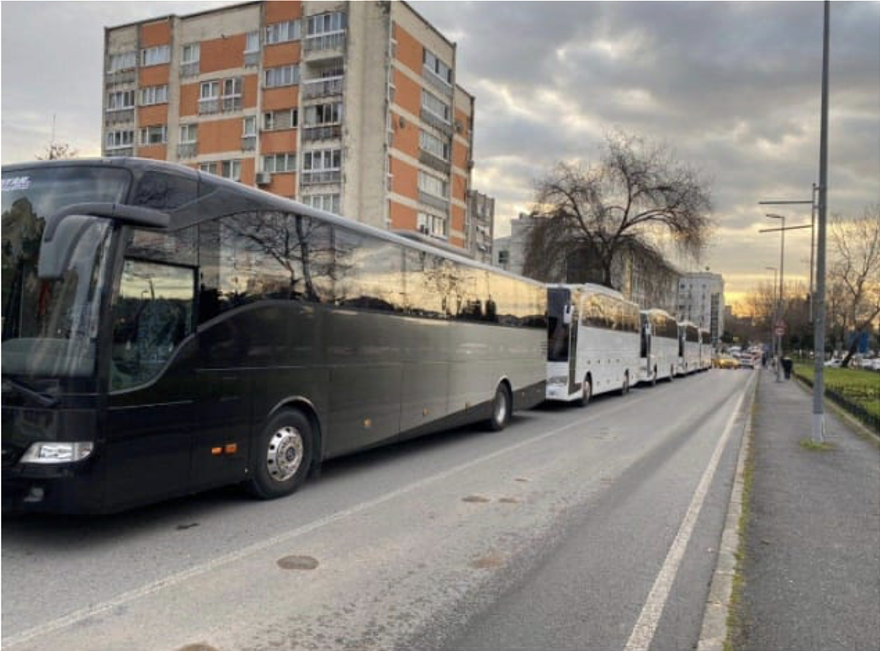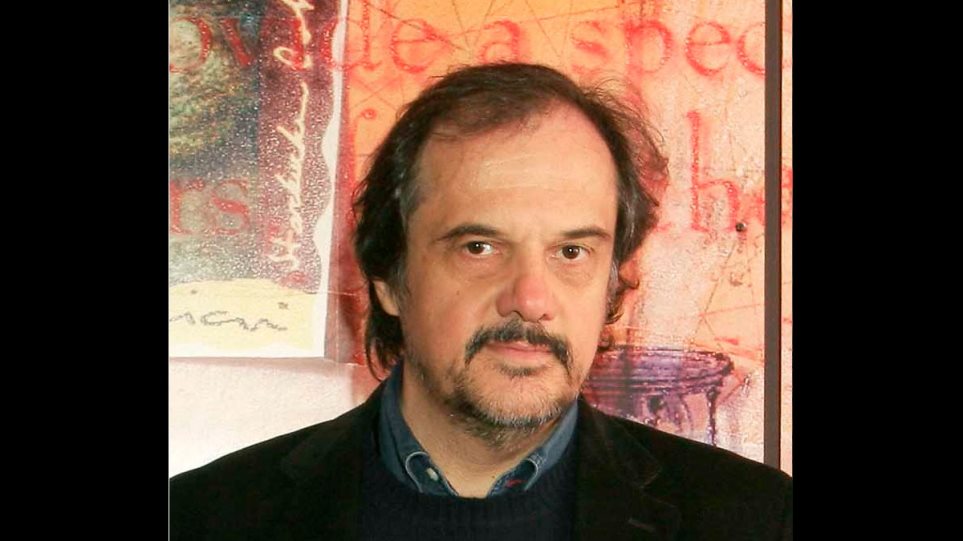To believe in a noble cause is commendable. To write in its service, in order to enlighten your fellow human beings about your high values, even more so. There is just one problem however: if you are a journalist, you must put facts above values—else you are a mere propagandist.
Apostolos Doxiadis
To believe in a noble cause is commendable. To write in its service, in order to enlighten your fellow human beings about your high values, even more so. There is just one problem however: if you are a journalist, you must put facts above values—else you are a mere propagandist. And the nobility of the cause does not whitewash the capital crime, for a journalist, of twisting facts to fit your views. No matter how noble the views. The European, and especially Greek, refugee crisis of recent years has given ample material to many capable and idealistic journalists to do excellent work, combining facts and values. Alas, the same cannot be said of the authors of the recent article of the The New York Times “We Are Like Animals: inside Greece’s Secret Site for Migrants” (March 10, 2020). In it, the writers have swallowed bait and hook the material fed to them by the highly effective Turkish propaganda machine. And the worst of it, is they appear to have no clue of it.
The gist of the article is that the Greek state has created a “secret site”—echoes of Guantanamo, the CIA, etc, during the Afghanistan/Irag wars—in which people seeking political asylum are treated “like animals”.
Idealism is no excuse for extreme naivety, sloppy fact-checking and, worst of all, ignorance of context. Thus, for example, the journalists of the New York Times article must have read somewhere—they are journalist after all, and thus should be better informed than the average person—that Erdogan’s Turkey is all but a totalitarian regime, in which tens of thousands of innocent citizens are incarcerated either without trial or after the proceedings of kangaroo courts; in which many thousands are being inhumanly tortured and at least some hundreds have been, as the official announcement goes, “been found dead in their cells”. Furthermore, the writers of the article should have been aware that in recent years the media are subservient to the regime, on pain of shut-down and jailing of their owners and writers and anyone who openly voices criticism of the government ends up in jail. Among them, is a huge number of journalists.
The International Committee to Protect Journalists recently called Turkey “the world’s worst jailer of journalists.” One would expect that that particular piece of information, if none of the previous, should have made young Western idealistic journalists less trustful of official Turkish sources, and more keen to investigate the stories fed to them by the state and its functionaries. Not so in the case of “We Are Like Animals”. On the contrary, they innocently report “Turkish officials”, as actual sources of veritable facts. Well, how about that! I wonder, does “according to a functionary of the Ministry of Propaganda of the Third Reich” sound like a prelude to a truth? No, not unless you are a moron or a Nazi. Well, neither does the appeal to Turkish officials, nowadays, especially in a matter as politically charged as the hybrid warfare that their country has recently unleashed on Greece. Is my analogy an exaggeration? Yes, but alas not a big one—yet its shock value makes my point: you don’t trust functionaries of repressive regimes as reliable sources. What makes this more annoying in the article is that the journalists present the denial by the Greek state of their claims as possessing the same, or, by insinuation, a lower a priori truth value. It should not: Greece, for all its faults, is a democracy, with functioning checks and balances and rule of law, a free press and a totally free opposition, which freely can investigate or criticize government actions—try that in Erdogan’s Turkey and you end up in jail.

One would expect from the journalists writing in a free country, for a major newspaper, professionals who purportedly have learned to respect the values of an open society, to be aware that guided misinformation, fake-news, propaganda-posing-as-truth and outright lying is the staple of an unfree state, and a trademark of Erdogan’s Turkey, whose despot has claimed to his associates that he is “the only infallible.” (Must we expect a protest from the Vatican, I wonder?) Well, the journalists who wrote “We are Like Animals” do not seem to be so aware. Gullibility is rarely a virtue. But never in a journalist.
Apart from their simple-minded acceptance of Turkish official sources as truthful, the main thrust of the journalists’ opus is based on one (!) source, a certain gentleman presented as a “Syrian-Kurd” whose name is spelled in the article, as Somar al-Hussein, presumbably to make it sound as the real thing. But the case is a bit more complicated. What has escaped the attention of the good journalists is that Mr. Somar Elhüseyin, as he himself writes his name, in accordance with Turkish spelling, is in fact a golden boy of the Turkish state. And that though he is a of Syrian-Kurdish origin, he is a Turkish citizen, who is paraded in the past few years in Turkey as a case of the perfect immigrant, showing off the wonders that assimilation to Turkish society can do. Of course, to be a golden boy of the Turkish state, today, means to be a golden boy of the Turkish propaganda machine of a ruthless dictator.
It’s worth to give a closer look at this young gentleman, the same who was presented in the New York Times article as a poor, long-suffering refugee, trying to make a better life in Europe, having escaped the very real horrors of the Syrian war.
In 2017, Mr. Elhüseyin was accepted to Karamanoglu Mehmetbey University, in the city of Karaman, in southern Turkey, to study energy engineering, as an international exchange student. His name had already been Turkified, at the time he took his entrance exams. And it became obvious very soon that after that he had been singled out, as a special case, a man who could work for and with the state and showcase its purported triumphs. In fact, as soon as he passed his exams, the fanatically pro-Erdoganist newspaper Hürriyet chose Mr. Elhüseyin (yes, the man whose name the New York Times orientalise as Al-Hussein) to give an interview, on September 14, 2017, on the benefits of the Turkish educational system for foreign students. Fact: you are not promoted by Hürriyet if you are not a friend of Erdogan’s state, as you were not promoted by Pravda if you were not a friend of the Communist state—and there is no exaggeration here.
Soon after his entrance exams, Mr. Elhüseyin was preferrentially transferred to the much more prestigious Maltepe University, in Istanbul. From then on, he started to appear as a state-sponsored student organizer, and also a regular speaker to events for refugees, passing to them the official government line on Turkey as a haven of freedom. Soon after, he was rewarded for his loyalty with Turkish citizenship—and anyone who knows anything at all about refugees, understands that to do achieve citizen status in less than three yeas, in any country is an extraordinary feat, showing strong state interest in your advancement.
Since then, Mr. Elhüseyin has continued his work as propagandist and organiser for the Turkish state. He is of course an outspoken enemy of the Syrian regime—and I have no quarrel with that—and a fanatic supporter of Turkey’s war effort, which I do not side with. And I especially don’t side with Mr. Elhüseyin’ s blood-thirstiness (“Let’s burn all Syria!” was one of his recent public comments, while jubilating for the downing of a Syrian helicopter—and Syria is his country, according to the New York Times.) But more recently, when Erdogan decided to storm the Greek, and thus the European, borders, staging an incursion with tens of thousands of non-Turkish nationals, some of them released from jails, some of them awarded a bonus of 800 Euros, all attempting to violently push their way into the country, supported by Turkish army transport and Army units, Mr. Elhüseyin was among the first to join the movement. Mind you, this was a violent, massive attempt to cross the Greek borders, with the crowds on the Turkish side, uncontrolled by police or army, throwing stones, fire-bombs and tear gas at the Greek border guards.
Mr. Elhüseyin was instrumental in organizing the campaign, effectively acting as an incursive tour-organiser, posting calls to all and sundry to join the attempt to enter Greece, most definitely under government sanction and support. Should anyone dout this, it is enough to see his Facebook page, still active and still carrying this information until this morning. On it, he advertised—I presume Facebook is accessible to American journalists, yes?—the high-tech buses that would be transferring immigrants, whether rightful claimants to refugee status or not, into Greece.
Well, I’ve spoken to hundreds of immigrants who have taken the hard road to Greece, clandestinely crossing the river Evros (Meriç in Turkish) to seek, and almost always get, refugee status in Greece. All of them have horror stories to tell about their travels on the Turkish side, stories with criminal smugglers and thousands of dollars paid and constant fear of being apprehended by the Turkish Gendarmerie before crossing the river. Not a single one has mentioned to me the conditions of the luxury tour, like the one Mr. Elhüseyin advertised on his Facebook page, complete with state-of-the art buses. Also, to calm any doubts to those he invited to his expedition to cross with him “the open European borders”, as to the approval of the state for his venture, he announced that “we will depart as soon as we have the clearance Turkish security.” The NYT articles states that Mr. Elhüseyin had a seat on one of the first coaches. It’s more precise than that: he had the front seat, next to the driver, from which he filmed part of the journey to the Greek border, filming and giving an online commentary, which he later posted on Facebook.
Greece, protecting its rights as a sovereign state, resisted the mass, violent incursion attempted by Erdogan and beat the attempt to break down the Greek (and, incidentally, European) borders by force. Out of the tens of thousands of those enlisted by the Turkish state in this operation, a few dozen managed to cross illegally and were duly arrested. Among them was Mr. Elhüseyin, who was incidentally the only man of Syrian descent, in what he advertised as an expedition that would carry his fellow Syrians to Europe and freedom. But he had ample freedom in Turkey, and his citizenship guaranteed to him also the right to a passport. If he wanted to go to Europe, he could have taken a plane. Why didn’t he? Because his mission was to lead others in the operation of the storming of the Greek borders.
After his misadventures described to the gullible journalists, about how he was treated “as an animal”, in a regular police station (“the secret site” of the article), he was returned to Turkey, having both entered illegally and not made a demand for asylum—if he had, he would have been moved to a special place of temporary detention, as happens in any European country, and released after a few days with the documents of an asylum seeker. But he did not ask for asylum because he did not want one—nor could he possibly make a case for it, being the citizen of a state that provides him with royal treatment. And as if to dispel any doubts about his feelings for Turkey, Mr. Elhüseyin expressed his relief publicly, as soon as he was returned to Turkey: “Home at last!” Home, here, meant Turkey. That information was available to the journalists who wrote the article, presenting him as a poor asylum seeker—if they only cared to look.
I will not say much more, and not comment more than it deserves on the new fad of using the pseudo-science of “forensic architecture” (which is neither architecture or forensic) which consists of nothing more than analysing photographs from Google Earth or other sources, with the skills of observation that any high-school student has, and as a rule applies more intelligently than the self-proclaimed “forensic architects,” who attempt to make a living out of presenting the trivial as profound. And this would be excusable in the particular case of the analysis of photos of the so-called “secret site”, if those putting them forth as evidence in the New York Times were at least looking a little more carefully. If they did so, they would notice that the “secret site”, proudly apparent on Google Earth, is a small installation with a few decrepit buildings and a couple of containers, with has no walls around it and no gate—just an open space that anyone can walk in and out of, with not even a wooden bar to stop them. Some secret site! What that location is, in reality, is a police station created in haste during the refugee crisis, where people arrested for illegal entry are transferred and kept for a couple of days. Those seeking asylum, are sent where they can legally apply. Those who entered illegally without valid reason are taken to court and given a supended two-month sentence. Those returned to Turkey are only those who really want to—like Mr. Elhüseyin and his happy return “home.”
As a student in the United States during the Vietnam War years, I read the New York Times every day with devotion, and learned from it not just facts, but lessons in diligence, hard work in fact-finding and objectivity. So, I respect the tradition of this newspaper too much to make generalisations about their progress in time. I will just finish by saying that their most recent article, “We Are Like Animals”, which is little more than rehashed Turkish propaganda, does them no honour. It is so sloppily researched, and leads to such faulty conclusions, that it’s appearance raises questions. I assume the editors have some hard thinking to do, as the truth comes to light. As to the article’s writers, I have two choices: to blame either their intentions or their very low professional competence. As I have no evidence on the first, I have to accept the second, judging them by their work. As Forest Gump famously said, “Stupid is as stupid does.”
Apostolos Doxiadis is a writer. Among his books are the international bestsellers “Uncle Petros and Goldbach’s Conjecture” and “Logicomix.”





